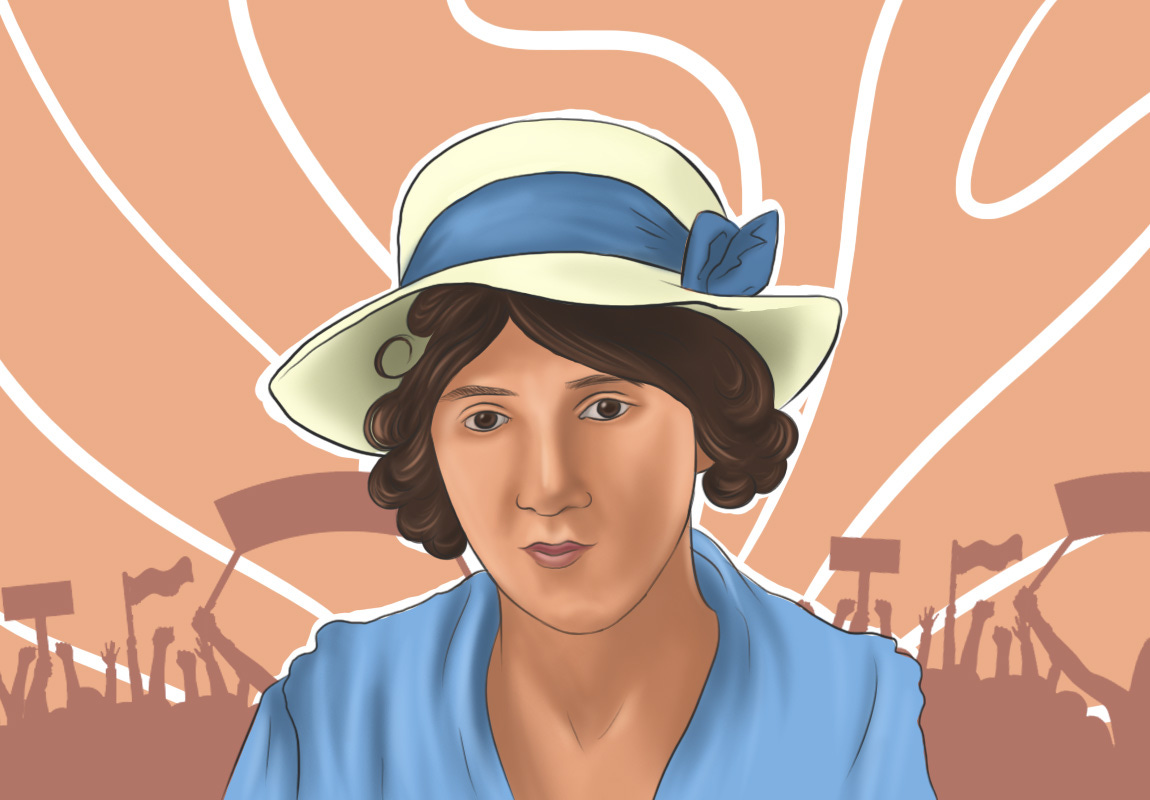Marie Stopes, a scientist and social activist, is known for her work as a pioneer in popularising the use of birth control in the United Kingdom.
Marie Charlotte Carmichael Stopes was born in Edinburgh, Scotland, on October 15, 1880. Stopes grew up in a wealthy and educated family. Her father, Henry, was an architect. Her mother, Charlotte, was a Shakespearean scholar and a strong advocate of women's education. The family moved to London after her birth. Stopes was educated at home by her mother until the age of 12.
The personalities of her parents had a strong influence on Stopes, even from a young age. Stopes expressed her intention to divide her career between research and humanitarian endeavours when she was still a teenager. Then she began her formal schooling at St. George's School, Edinburgh. After a short period, she was sent to North London Collegiate.
In 1900, at the age of 20, she enrolled at University College, London. During her college days, she focused on Chemistry and later switched to Botany. In 1902, she received her Bachelor of Science degree with honours in Botany and Geology. After graduation, she went on to do postgraduate studies in palaeobotany. At that time, one of her professors, Francis Oliver, was on the verge of a massive breakthrough in plant evolution. As his assistant, Stopes played a crucial role in that research.
Stopes went to Germany to gain a PhD. She focussed on the sexual habits of cycads, a primitive plant. In 1904, she earned her doctorate from the University of Munich and returned to the United Kingdom. When she returned, broadsheets hailed Stopes as "the youngest Doctor of Science in Britain". The University of Manchester offered her the position of assistant lecturer of botany. However, the authorities failed to realise that Dr Stopes was a woman. When the news spread, the university tried to revoke the job offer. However, Stopes had connections in high places, and through her connections, her appointment was confirmed.
Stopes always wanted to do more than just teach. She specialised in the research of fossil plants and the problems of coal mining. She visited hazardous coal mines in Lancashire and collected 300-million-year-old plant fossils for her studies. Her research shed light on the origin of coal.
In 1911, Stopes married Reginald Ruggles Gates, a botanist. Their marriage was unsuccessful. Later, Stokes stated that her marriage was unconsummated. Her failed marriage influenced her to turn her attention to the issues of sex, marriage, and childbirth. She initially saw birth control as an aid to marriage fulfilment and as a way to protect women from the physical stress of excessive childbearing. However, she also supported eugenic birth control, where inferior women of lower classes would be prevented from having children.
In 1918, Stopes married Humphrey Verdon Roe, cofounder of the A.V. Roe aircraft firm. Roe also had strong interests in the birth-control movement. In 1921, they founded their birth-control clinic, where women were educated about the methods of birth control available to them. In the same year, Stopes became the founder and president of the Society for Constructive Birth Control. She used this platform to discuss the benefits of married women having healthy, desired babies.
During her lifetime, Stopes faced criticism for advocating views that were, in some circumstances, outdated and not appropriate for all individuals.
Stopes wrote her first book, Married Love, in 1916. It took two years to find a publisher, and eventually, the book was published in 1918. The book was an instant hit, and Stopes followed it up with her second book, Wise Parenthood, published in the same year. Wise Parenthood became the best-selling guide to birth control. In 1923, she published Contraception: Its Theory, History and Practice. At that time, it was the most comprehensive treatment of the subject.
After the Second World War, Stopes promoted birth control in East Asian countries.
During her lifetime, Stopes faced criticism for advocating views that were, in some circumstances, outdated and not appropriate for all individuals. But most of the criticism she faced was also brought on by the fact that she dared to bring up subjects that, at the time, were still viewed as inappropriate for public discourse.
Stopes died on October 2, 1958, due to breast cancer.
Thank you for listening. Subscribe to The Scando Review on thescandoreview.com.
Happy Teaching!














Marie Stopes: England's leading campaigner for birth control